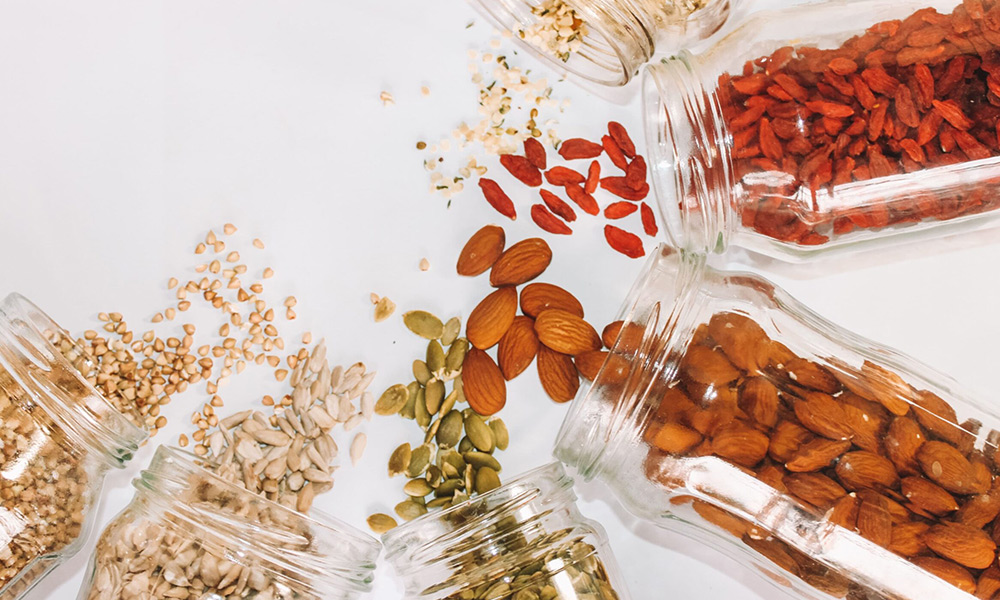Eliminating processed meat from your diet can be a wise choice, as meat has been linked to higher incidences of pancreatic, prostate, stomach, and colorectal cancers. Discovering new sources of non-meat protein is essential for health and for variety.
While skipping meat can help lessen cholesterol, saturated fat, and sodium of meat, you also risk nutritional deficiencies, including low levels of calcium, vitamin D, iron, and total protein intake. To ensure that you maintain your required nutrients to stay healthy, here are 11 different protein options for you to try today!
Beans
In addition to providing high levels of protein, beans are also an excellent source of iron. Iron produces hemoglobin which enables red blood cells to carry oxygenated blood throughout your body and prevents anemia.
Greek yogurt
Greek yogurt is a smart and simple switch in your everyday cooking routine that can also serve as a source of potassium, calcium, carbohydrates, and healthy fat. It’s also a tasty treat when you’re searching for high-protein vegetarian snack foods!
Cheese
Cheese can be a topping for just about any meal, and it adds essential extra calcium to your diet as well. See how much protein you can rack up from the following:
- Parmesan: 28 g per cup
- Cheddar: 24 g per cup
- Cottage cheese: 23 g per cup
Eggs
Don’t forget about breakfast! Prepare eggs any way you want for a guaranteed source of zinc, phosphorus acids, and good (HDL) cholesterol! Bonus: egg yolks are also a supplemental vitamin D source.
Chia seeds
Add chia seeds to your next smoothie. In addition to protein, they also offer significant levels of omega-3 fatty acids, another element that vegetarians can lack when leaving meat behind.
Oats
Oats are filled with nutritional benefits and can be easily added to your diet. If you’re looking for more fiber to add to your daily routine, opt for a bowl of oatmeal or sprinkle oats on top of your morning yogurt, afternoon smoothie, or after-dinner shake.
Nuts
Protein, fiber, calcium, and antioxidants…nuts have got it all! Take them as an on-the-go snack or add them as a topping to salads, cereal, or even ice cream! See the protein amounts per recommended serving size (¼ cup) below:
Lentils
Lentils are high in fiber and complex carbs while remaining low in fat and calories. A cup provides 24 grams of protein and 273 milligrams of potassium, which helps keep your heart rate regulated!
Tofu
Crafted from soybeans, tofu contains all nine amino acids, which help bodies repair muscle and skin. While tofu doesn’t have much taste by itself, it helps add texture and absorbs its surrounding flavors.
Hemp seeds
Hemp seeds are another topping you can add to just about anything for extra protein, zinc, omega-3s, and omega-6 fatty acids.
Quinoa
This plant-based protein has 8 grams of protein per cup. It will also assist with keeping up your iron levels, too!
Whether you are looking for additional alternatives to your current menu or you want to start your meatless journey on the right foot, be sure to listen to your body as you experiment with the nutrition that works best for you.
If you’re a cancer survivor who is looking for nutritional guidance, Survivor Fitness can connect you with a certified nutritionist to help you regain your health and wellness.


